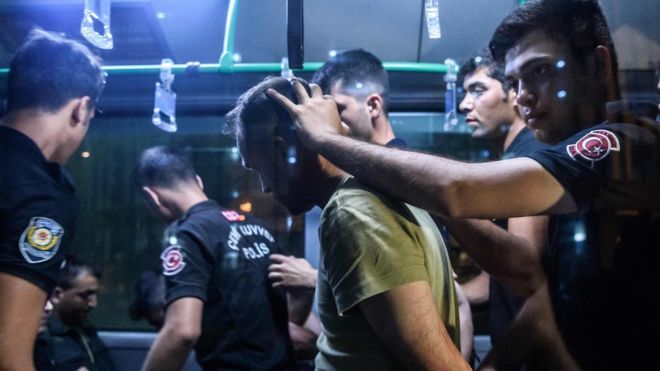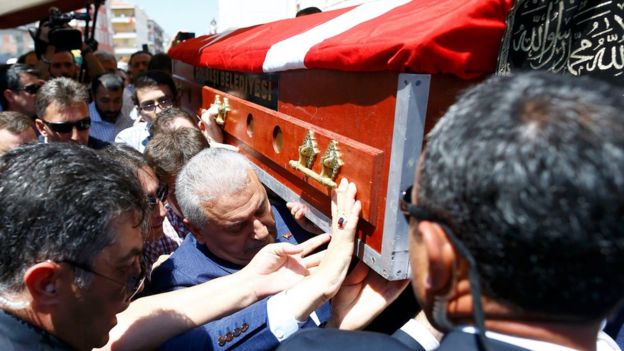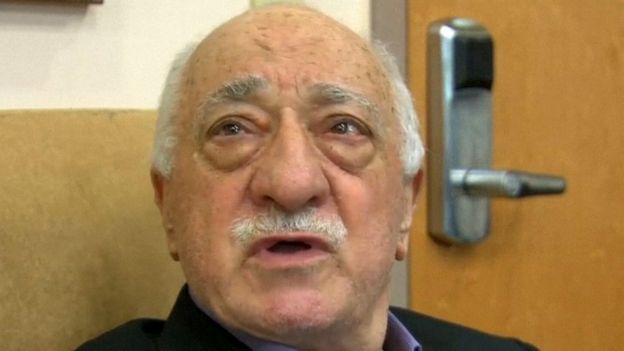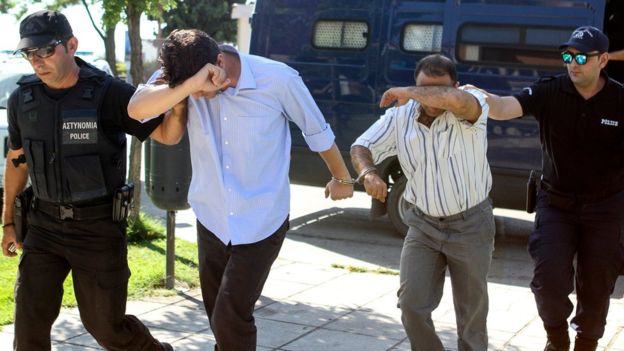Turkey coup attempt: Some 6,000 people detained, says minister

Turkey has detained 6,000 people over Friday's failed coup and the number is expected to rise further, Justice Minister Bekir Bozdag has said.
The sweep has included high-ranking soldiers and 2,700 judges. More than 50 senior soldiers were detained in the western province of Denizli on Sunday.
Mr Bozdag described the arrests as a "clean-up operation".
At least 265 people were killed in clashes as the coup failed.
Turkish President Recep Tayyip Erdogan says parliament might consider a proposal to introduce the death penalty.
Mr Erdogan has accused a US-based Turkish cleric, Fethullah Gulen of being behind the plot, which Mr Gulen denies.
High-profile arrests
The arrests reportedly include Gen Erdal Ozturk, commander of the Third Army; Gen Adem Huduti, commander of the Second Army; and Akin Ozturk, the former Chief of Air Staff.
Maj Gen Ozhan Ozbakir, commander of the Denizli garrison, was among the senior military figures arrested on Sunday, Turkey's Anadolu news agency reports.
One of Turkey's most senior judges, Alparslan Altan, has also been taken into custody.
Eight Turkish soldiers who fled to Greece and claimed political asylum have appeared in court there charged with illegal entry.
Their lawyer told Greek TV they had not taken part in the coup, but had flown to Greece when they were shot at by Turkish police. Turkey is seeking their extradition.
'Harmful insinuations'
Mr Erdogan said that those behind the plot would pay a heavy price, calling the coup a "gift from God… because this will be a reason to cleanse our army".
He called on the US to extradite Mr Gulen, who heads the popular Hizmet movement and is said to count military chiefs and mid-level bureaucrats among his followers.
Once allies, Mr Erdogan has long accused Mr Gulen and his supporters of plotting against him.
US Secretary of State John Kerry said of any extradition, that Turkey should "present us with any legitimate evidence that withstands scrutiny".
Mr Gulen has denied any involvement in the coup. The 75-year-old, who has been in self-imposed exile in Pennsylvania for the past 15 years, said: "I don't even know who my followers [in Turkey] are."
Mr Kerry strongly rebuked a Turkish minister who suggested Washington was behind the coup. He said "utterly false" insinuations were "harmful to our bilateral relations".
US President Barack Obama has joined other world leaders in calling for all parties in Turkey to "act within the rule of law".
Tens of thousands of Turks partied into the small hours of Sunday in celebration of the failure of the coup.
Many of those who have been critical of President Erdogan's growing authoritarianism welcomed the speedy extinguishing of a coup as a victory for democracy, says the BBC's Middle East World Service Editor Sebastian Usher.
But they are now holding their breath to see how Turkey's much prized democratic system will bear up as Mr Erdogan takes full advantage of his personal triumph in defeating those who tried to bring him down, he adds.
Why did coup happen? — Jeremy Bowen, BBC News Middle East Editor
The attempted coup happened because Turkey is deeply divided over President Erdogan's project to transform the country and because of the contagion of violence from the war in Syria.
President Erdogan and his AK Party have become experts at winning elections, but there have always been doubts about his long-term commitment to democracy. He is a political Islamist who has rejected modern Turkey's secular heritage. Mr Erdogan has become increasingly authoritarian and is trying to turn himself into a strong executive president.
From the beginning Mr Erdogan's government has been deeply involved in the war in Syria, backing Islamist opposition to President Assad. But violence has spread across the border, helping to reignite the fight with the Kurdish PKK, and making Turkey a target for the jihadists who call themselves Islamic State.
That has caused a lot of disquiet. Turkey has faced increasing turmoil and the attempt to overthrow President Erdogan will not be the last of it.
Политика конфиденциальности | Правила пользования сайтом










